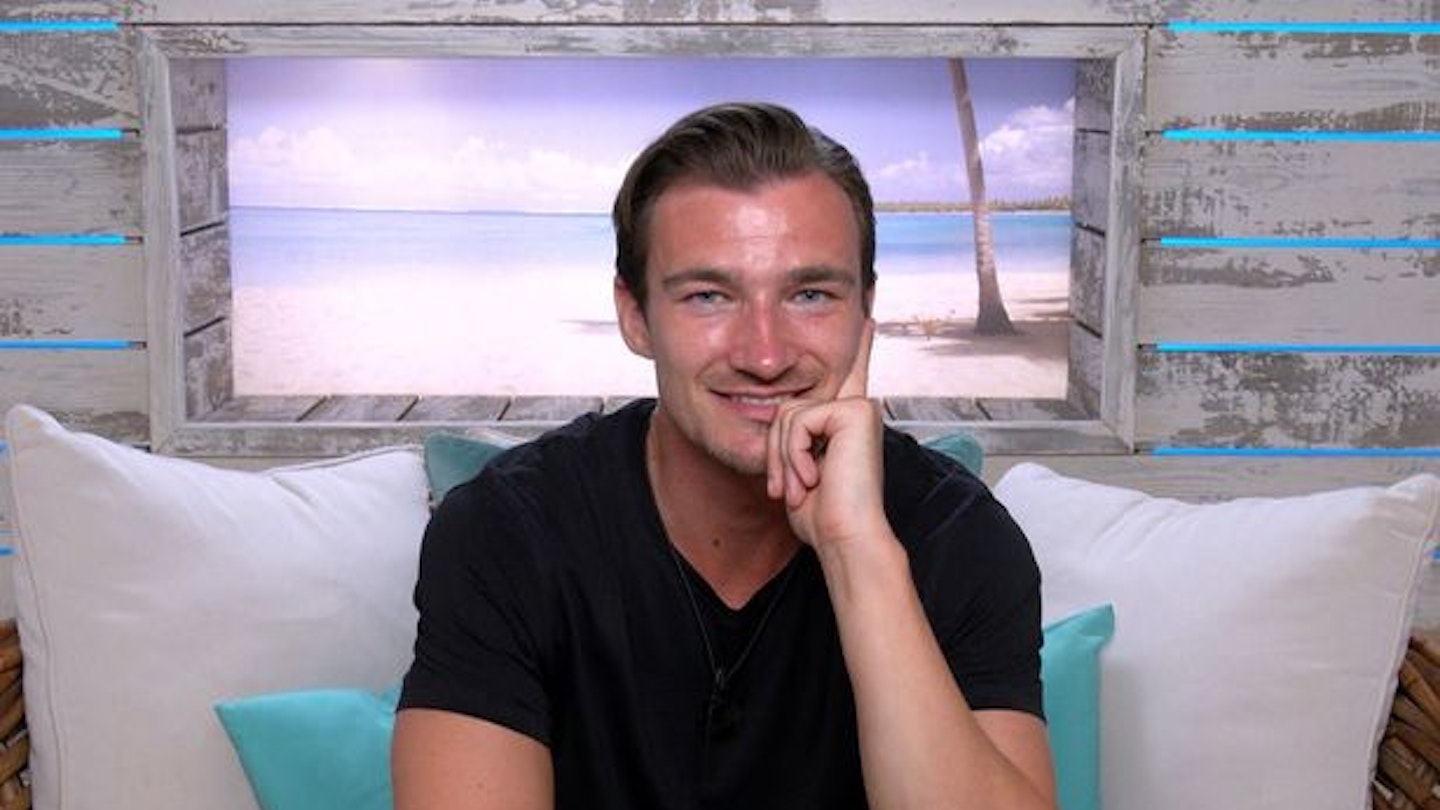Last week, Molly-Mae Hague's PrettyLittleThing catwalk show happened. Molly - who is the creative director of the fast fashion brand - had Love Island castmates including her boyfriend, Tommy Fury, and her best friend Maura Higgins there to support her.
But a group of protesters, also turned up outside the show, held at the Londoner hotel in Leicester Square. They were there to protest against what they claim are unfair wages for Boohoo factory staff, which owns PrettyLittleThing. (One held a sign reading: 'PLT Creative Director Salary: £4.8 million, PLT garment maker salary £7,280. Same 24 hours in a day.') They were also chanting about sustainability.
Speaking to Grazia following the event, Brett states that as a high-fashion model, raising awareness for sustainable fashion has always been a passion. 'I've worked exclusively with either luxury high end or sustainable brands for the last few years, and I've distanced myself from fast fashion for quite a while.' He continues, 'When the opportunity came up, that we could perhaps create some change and raise awareness around the bad practices of fast fashion and their unethical business model - I thought it'd be really good.'
He revealed the protest was all in the planning and their small group organised it a few days before. The model says, 'With this cause, I'm drawn to the people who are exploited - sustainable fashion is about the planet, but I really have empathy towards the people within the story as they're often overlooked.'
(A spokesperson for PrettyLittleThing told Grazia: 'Any suggestion that the people making clothes for PLT or any other boohoo group PLC brand are paid lower than the minimum wage is grossly inaccurate. We publish a list of all our approved UK and international manufacturers, all of whom have been audited over the last 18 months, and we do not tolerate any non-compliance with our supplier Code of Conduct. We operate a whistleblowing hotline so people can share any concerns they may have and we work with relevant government agencies to ensure the people who make our clothes have their rights in the workplace protected.')
But, coming from a show that's synonymous with fast fashion (I Saw It First sponsors Love Island), how does Brett feel about his peers who attended the event? 'I wrestle with having friends that do support these fast fashion brands,' he admits. 'I think people believe that you can only go on Love Island if you support these fast fashion brands - you don't have to. I brought all of my own clothes into a villa and made a point about that.'
Brett admits that the reaction to such a daring move has been mixed. 'At London Fashion Week, people have come up to me and said "Well done, we saw the protest." 'Equally, I've had people abusing me for trying to bring down women or saying it’s not Molly-Mae’s fault.' He explains, 'I'm not directly trying to attack Molly-Mae, she's part of it but she's not the whole thing. It was never about bringing down aspirational women. It's about making people aware that this kind of business exploits women in their supply chains and exploits communities all over the world.'
The model hopes that by using his voice, he can inspire change. And he says he'd rather 'empower people' than 'shame them into change'. 'All I can try and do is like raise awareness and bring education to social media,' he says. 'So, even [the people who were] in the queue, we weren't shaming them, we were trying to encourage them. We basically said look, it's not too late. We all have fast fashion items in our wardrobe but we must get the most use out of them.'
So, following the protest - and the widespread coverage it got, from news websites and people resharing the protest images on Instagram - what does Brett want to change? 'I think there should be legislation in place for companies to map 100% of their supply chains, so that they can be fully accountable for the bad practices that they have,' he says.
READ MORE: It’s Time That Love Island Broke Up With Fast Fashion – Before It's Too Late
